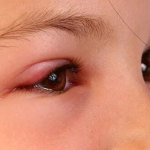Hepatitis C, a liver disease caused by a virus, is one of the most common and deadly infectious diseases worldwide. The World Health Organization (WHO) says that there are 71 million people suffering from chronic hepatitis C infection in the world and 399,000 of them die from the disease and its complications annually. Unfortunately, there is no vaccine to protect people from the disease at present. Understanding how the disease spreads and how to prevent yourself from getting infected is important.
Transmission
The pathogen that triggers hepatitis C is the hepatitis C virus (HCV). The genome of HCV is a single-stranded RNA. Like other RNA viruses, HCV mutates rapidly and there are many different strains circulating in the world. This increases the difficulty of the detection, treatment, and prevention of HCV infection. HCV is a blood-borne virus, meaning that it can be spread through contamination by blood and other body fluids. The exposures associated with transmission of HCV include:
- The use of injectable drugs like heroin
- Blood transfusion or receipt of blood products
- Organ transplantation
- Injuries by medical equipment that has not been fully sterilized, such as needles
- Birth to an infected mother
- Having unsafe sex with an infected person
- Sharing personal items like razor
Of these, the use of injectable drugs may be the primary mode of transmission of HCV. In some regions, more than 80% of HCV-infected people get the infection through unsafe injecting drug use. The reason is that many intravenous drug users share needles. In the past, HCV infection was strongly associated with blood transfusion. Now, thanks to blood donor screening, HCV is rarely transmitted by blood transfusion or organ transplantation.
Symptom
Many people with HCV infection do not know that they are infected because they do not experience any symptoms after exposure to the virus. Only 15% of HV-infected people exhibit acute symptoms. When symptoms occur, they may include loss of appetite, fever, tiredness, nausea, vomiting, abdominal pain, muscle pain, joint pain, and jaundice. The severity of these symptoms is usually mild but can be severe in some cases. Many of the initial symptoms of HCV infection are also seen in other diseases. For instance, jaundice, a condition characterized by the yellowing of the skin and the whites of the eyes, can also be triggered by tumors, narrowing of a bile duct, malaria, and other diseases. For these reasons, many people with HCV infection go undiagnosed.
HCV infection may remain ‘silent’ for as many as 20-30 years. These infected people do not exhibit obvious symptoms but the virus is actually causing damage to their livers and other organs. Left untreated, HCV infection may progress to more severe medical conditions, such as cirrhosis, liver cancer, and liver failure. At that time, treatment will be much more difficult. Every year, nearly 399,000 die of hepatitis C, mainly as a result of cirrhosis and liver cancer.
Diagnosis
- HCV antibody test
When the body is infected with HCV, the body’s immune system produces antibodies to fight the virus. Detecting the presence of these antibodies helps determine whether a person is infected with HCV or not. The HCV antibody test is a simple blood test and is usually the first test done when a doctor suspects a patient has hepatitis C. A positive result means that the person has had an HCV infection at some time.
- HCV RNA test
The HCV RNA test uses PCR to detect HCV RNA in blood samples. This method can be used to measure the number of HCV in the blood and monitor patients’ response to anti-viral therapies. But false-positive and false-negative results are possible.
- Liver function test
HCV mainly affects the liver. There are some useful biomarkers of liver damage, such as ALT, AST, ALP, and GGT. The liver function test is a blood test that measures the levels of these biomarkers in the blood. It helps doctors evaluate the state of a patient’s liver. If an individual has abnormal levels of these biomarkers and also has HCV antibodies, there is a great chance that he or she has HCV infection.
Treatment
Not all people exposed to HCV develop hepatitis C. According to estimates, 15-25% of HCV-infected people clear the virus from their bodies in the absence of treatment. However, the majority of people exposed to the virus develop a chronic infection, which may cause liver scarring and other severe complications. Immediate and appropriate treatment is very important.
The treatment of HCV infection depends on liver’s state, HCV strains, and other factors. At present, antiviral medications are the most common treatment for people infected with HCV. These antiviral medications are good at ridding the body of the virus and they have mild or no side effects. Here are some examples of these antiviral medications: daclatasvir, elbasvir/grazoprevir, and ledipasvir. Treatment with these antiviral medications can cure up to 95% of chronic HCV infection.
The problem is that many people don’t know they are infected or don’t have warning symptoms. These people don’t seek medical cure until the disease is advanced. If the liver damage is very serious, a liver transplant may be required.
Prevention
In many countries, children are recommended to get vaccines for hepatitis A and B. Unfortunately, there is no vaccine for hepatitis C. It has been about three decades since HCV was first identified. Scientists have made a lot of efforts to understand the biology of HCV infection. Treatment of hepatitis C has vastly improved over the years. But the development of HCV vaccines is hindered by a lack of appropriate animal models and the high mutation rates of HCV.
There are some tips to help you reduce the risk of getting HCV infection:
- Stay away from drugs
- Use a condom when having sex
- Wear gloves when touching other people’s blood
- Don’t share personal items like toothbrush, razor, or nail clipper
- Don’t share tattoo needles
Author Bio
Caroline Liu is an author, focused on topics like infectious diseases and life sciences, and works at Cusabio, a biotech company that offers proteins, antibodies, and ELISA kits as well as protein expression services.







